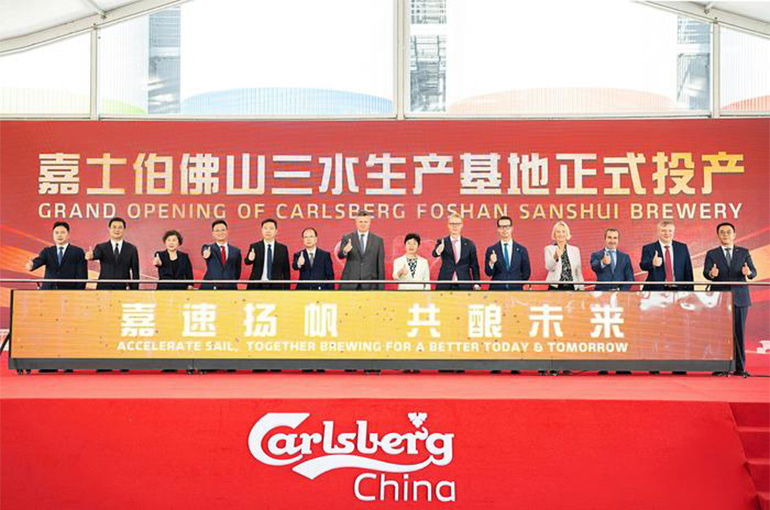 Carlsberg’s New USD416 Million China Brewery Comes on Tap
Carlsberg’s New USD416 Million China Brewery Comes on Tap(Yicai) Aug. 29 -- Danish brewer Carlsberg Group has started making beer at its new CNY3 billion (USD416 million) plant in China's southern Guangdong province.
The 16.7 hectare plant in the Sanshui district of Foshan came on stream yesterday, Carlsberg said the same day. It can make 500,000 kiloliters of beer a year and is a world-leading facility for green production as well as environmental, social, and governance practices, the firm aded.
It has two bottled beer production lines turning out up to 48,000 bottles an hour; a canned beer line producing 90,000 cans per hour; and a beer barrel line churning out 90 barrels an hour.
Carlsberg's first research and development center outside of Europe is also at the new brewery. Despite the uncertainty brought by the Covid-19 pandemic, the Copenhagen-based company invested an additional CNY500 million (USD70.1 million) to build the Carlsberg Group Asia Development Centre.
Carlsberg has invested over CNY20 billion (USD2.8 billion) in China since entering the market at the end of the last century. It also introduced more advanced equipment and technologies to enhance the brewer's capabilities in smart manufacturing, green production, and ESG.
The Foshan plant is Carlsberg's first ‘sponge brewery,’ recycling up to 3,000 cubic meters of rainwater through a collection and treatment system that will lower overall water consumption, helping the plant to go greener, clean workshops, and produce non-contact products.
The plant is also the first ‘air-conditioned brewery’ in China's beer sector, with its production workshops having air conditioners powered by solar panels, reducing its carbon footprint and improving the working environment. It is also Carlsberg's first brewery to use electric forklifts only, further cutting emissions.
Foshan aims to build a food and beverages industry cluster with an output value of CNY100 billion (USD14 billion). Sanshui district, where the Xijiang, Beijiang, and Suijiang rivers converge, has become an important beverage production base, nurturing many local brands and attracting several global ones thanks to the high-quality water.
Editor: Martin Kadiev